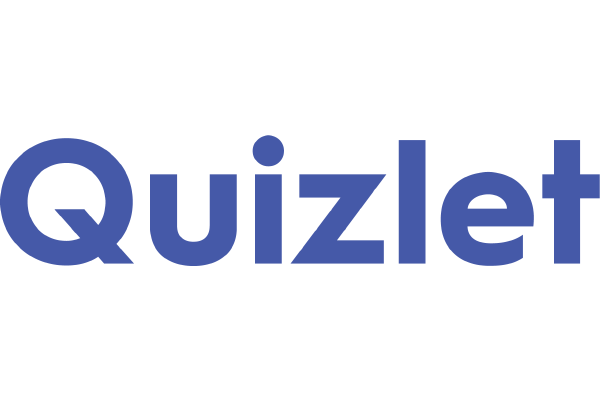Make MFL planning a breeze with Quizlet

Teachers and pupils both love the summer holidays; both head back to school with a mix of excitement and trepidation.
But only teachers are especially preoccupied with planning - what do pupils need to learn this year, and what do they remember from last? And since successful learning is about confidence, do they realise how much they already know?
This is particularly important for language teaching. The perception many have of languages as difficult subjects means teachers must always be on the front foot as regards empowering their students: See how much you know? See how much you can do with it: the places you’ll go and the people you’ll meet?
As an online learning platform populated with engaging, customisable study sets and interactive activities, Quizlet can help sustain this forward momentum while also strengthening the foundations of prior learning.
Building independence
The basic “Learn” function, backed up by “Spell” and “Write”, allows teachers to drip-feed new vocabulary and concepts, while deploying the randomised test function (writing, matching, multiple-choice, true/false) and the Gravity and Match games to stimulate recall. All functions are adaptive, focusing effort on points of weakness by bringing them back more frequently for review, and the inbuilt practice of low-stakes testing is a stress-free mode of preparing pupils for exams.
The main attraction of Quizlet, though, is the independence it breeds, both in and beyond the classroom. It works brilliantly on mobile devices, meaning tasks can be completed on the go while QR codes linking to differentiated quizzes can be included on homework sheets.
The scope for non-judgmental self-testing - critical in building robust long-term memory - is unlimited. Individuals can stretch themselves by creating personalised decks using the “Combine Set” aggregation feature to mix and match pre-existing study sets. Not only is the increase in agency a boost to motivation, but it is also when they engage in this higher-order learning that pupils become most like their teachers.
Conversely, teachers can use Quizlet to emulate their pupils. The best teachers are still learners, continually developing subject-specific knowledge and refining their skills. Among the most important skills is planning. Long-term planning, which requires vision: the selection of topics (not just what but why), what order to teach them in and how long to spend on each (and why), whether to supplement the textbook (or use one in the first place).
This sponsored podcast was produced in association with Quizlet.
And short-term planning must be pragmatic and responsive: how to present information (content and grammar), how to practice, apply and integrate learning, how to test and troubleshoot new and old knowledge, and how to move on.
Quizlet is optimally configured to assist in plotting this complex, multi-layered process and provide a framework to help map out the year ahead to monitor student progress and achievement.
For example, individual flashcards impose the discipline of constraint, requiring key points to be articulated succinctly - clear evidence of clear thinking - but the sequence of cards is fluid and open-ended.
Within the over-arching structure of the planning folder it is easy to burrow down into study sets for individual topic areas - the correct use of infinitive verbs, or auxiliary verbs in compound tenses, matching conjugated verbs to subject pronouns, the formation of adjectives from participles, elision, idioms, why we need the subjunctive.

Structured learning
Quizlet can also map out what you want pupils to learn over the year, the term, week by week and day by day - and test your familiarity with those guiding plans by the same methods pupils would and then dynamically annotating and amending plans based on the in-class experience. Make planning dynamic by annotating and adding cards on the back of in-class experience.
In week one (then at the start of each week), use Quizlet diagnostically, to reveal how much pupils already know while checking, for immediate formative planning, what has slipped through the net.
Do pupils remember the principles of grammatical gender and can they explain their understanding to new classmates? Do they remember that in Spanish there are four ways of saying ‘yellow’ and ‘red’ and ‘black’ and ‘white’ (colour adjectives ending in ‘o’), but only two for ‘green’ and ‘grey’ and ‘brown’ and ‘blue’ (ending in ‘e’, ‘s’, ‘n’ and ‘l’) and ‘pink’ and ‘orange’ and ‘lilac’ (which double as fruits and flowers)?
Superficially banal, but the fundamentals of adjectival agreement are all there, so mastery pays off exponentially. Furthermore, Quizlet’s synthetic text-to-speech capability means information can be fed simultaneously through ears as well as eyes - invaluable in linking sound to spelling.
For mixed-ability groups, I would limber up with the whole range of functions, maybe using the print feature to enable pair games, to combat sluggishness and embed learning kinesthetically. For high-ability I would jump right in with the high-octane team-based challenges of the more competitive Quizlet Live.
Of course, there is still room for the big-picture curriculum map plotted out on a sheet of A3 to allow you to see a year at a glance and make illuminating connections across time. But teaching is mostly a linear exercise about timing and what comes next in the sequence.
Quizlet lends itself ideally to articulating this sequence in easily shareable form. Exactly as it helps pupils retain information, generating and reviewing bespoke study sets and targeted assessments helps teachers internalise and stay on top of their plans.
Teachers lead by example: to generate confidence in others they must be confident themselves. Where once we would rely on old-style filing cards to see us through revision or a speech the creative use of Quizlet is an appealing, supercharged alternative, supporting teachers in delivering a sustained, demanding, and nuanced performance in the classroom.
Dr Heather Martin is a languages specialist and tweets @drheathermartin
